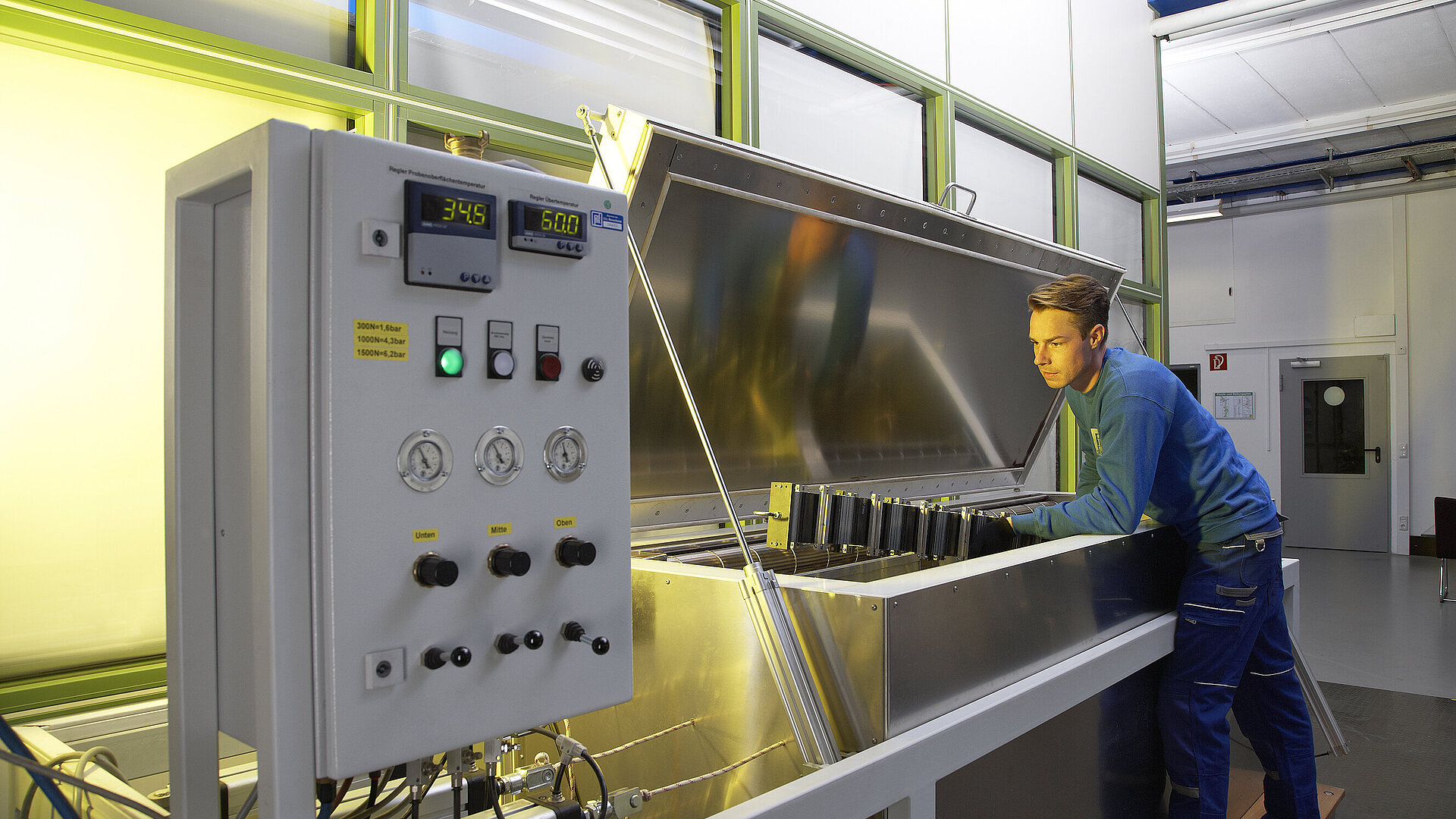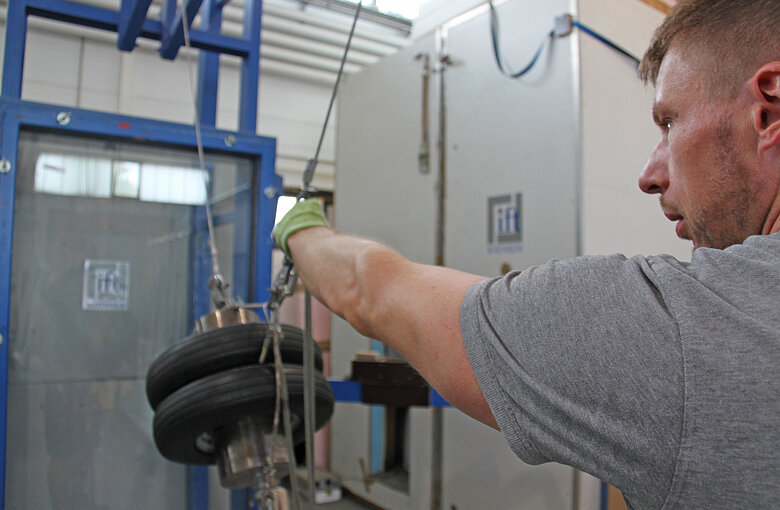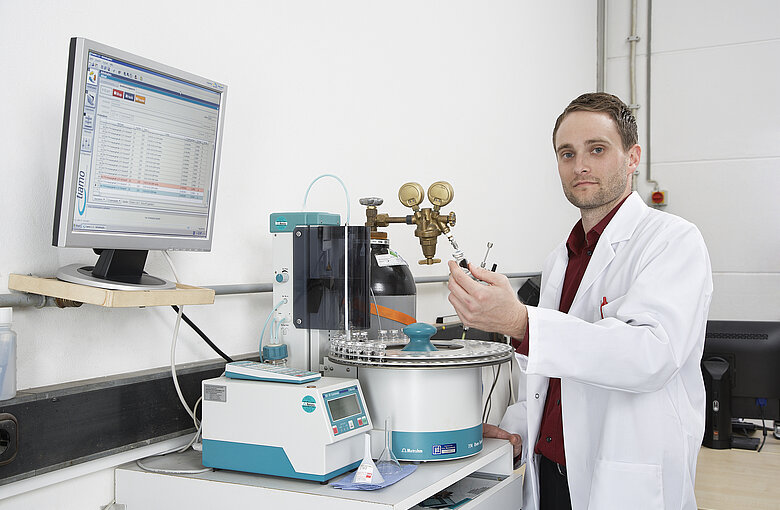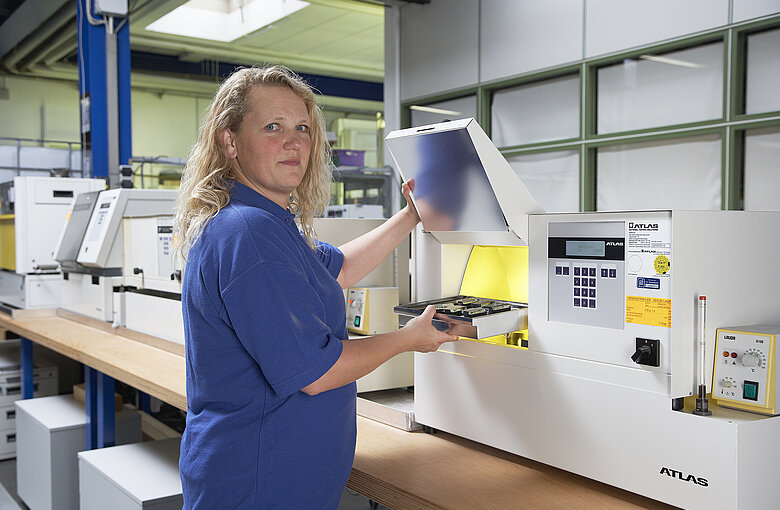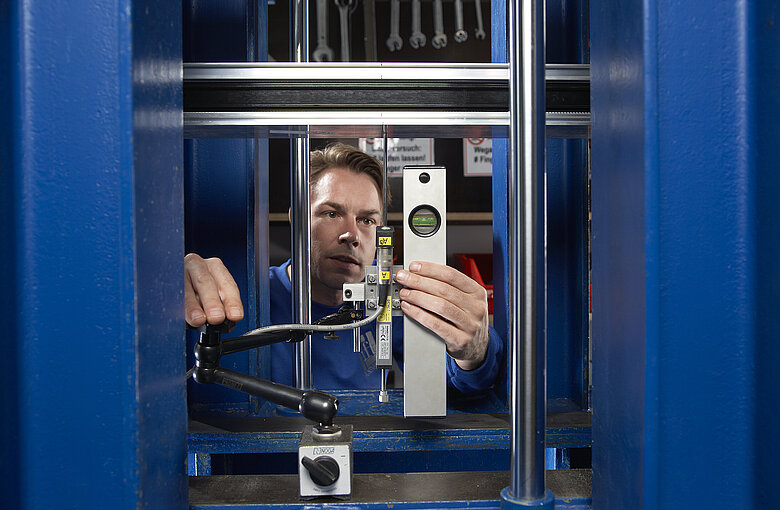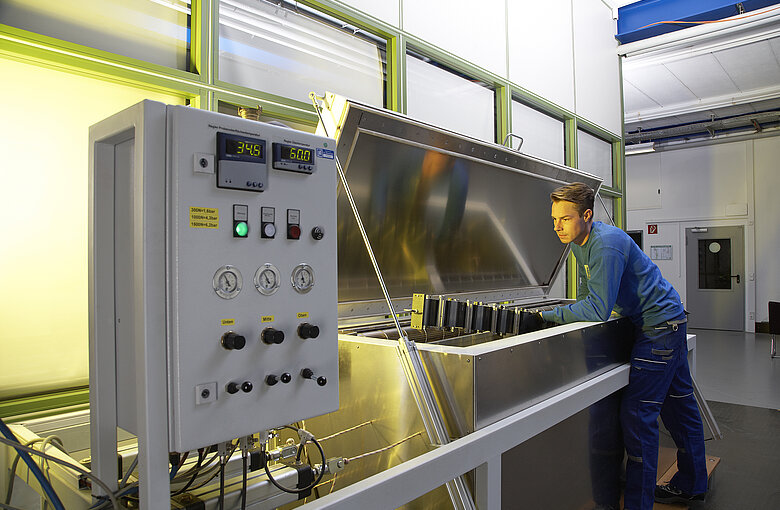The durability of a building component is primarily determined by the single components used. In the laboratory for material testing, all materials required for the manufacture of industrial, commercial, garage doors and gates can be tested. In addition to determining the material identification data, the building material test also includes the assessment of durability (also with wood) as well as the interactions with other building materials. According to more than 300 guidelines, mechanical, analytical and compatibility tests are carried out before and after artificial ageing.
Performance of Laboratory for Material Testing
The range of services offered by the testing institute is multifaceted, from the evaluation of tenders, designs and detailed solutions to suitability tests for the evidence of usability taking into account the use in building components and the determination of performance characteristics within the European product standards. In addition, the laboratory offers microscopic and chemical material analyses as well as quality assurance of materials and building materials with customized certification and surveillance programs. The laboratory's key services can be subdivided into mechanical tests, chemical-analytical tests and artificial ageing.
-
Mechanical tests e.g. strength tests on transom-mullion-connections, determination of the characteristics of composite profiles, anti-vandal resistance and anti-bandit resistance at security glazing, testing of corner joints, pendulum test
-
Chemical-analytical tests e.g. determination of gas permeability or water vapour permeability, moisture absorption or chemical characteristics of insulating glass units, sealing materials or wall connections, corrosion resistance, compatibility tests according to ift Guidelines, e.g. when different components such as coatings and sealing profiles come into contact with each other
-
Aging due to temperature, humidity, UV radiation and/or mechanical load in the laboratory or in outdoor exposure
All advantages at a glance
Products in Detail
Products that are tested include, for example, frame profiles made of aluminum, wood as well as plastic and composite materials such as metal profiles with thermal barrier with reinforcing systems. Other products include fixing material such as screws and dowels for wall connections, sealants and sealing profiles, and adhesives for use in components and fasteners for window frames and stick constructions. Excerpt of products:
- Frame profiles (wood, metal, plastic, ...)
- Materials for wall connections
- Sealant and sealing profiles
- Insulating glass units and their components
- Adhesives
- Insulating materials
- Connecting devices
- Mechanical components
- Surface coatings
- Special glasses, security glazing, coated glasses
Building Material Tests
For building material tests, ift Rosenheim has all the necessary laboratory facilities and expertise to characterize different materials. Further focuses are the test technology determination of essential material properties as well as the test of the suitability of the product for the corresponding application area. Building material tests are carried out according to national and European standards as well as guidelines and testing methods, based on ift Rosenheim's years of experience. Excerpt from the possible tests:
- Compatibility of sealants
- Compatibility of edge seal of insulating glass units
- Tensile shear strength of wood adhesives
- Thermal shock resistance
- Metal profiles with thermal barrier, mechanical performance and mechanical strength
- Long-term mechanical performance under the influence of mechanical load and/or temperature and humidity
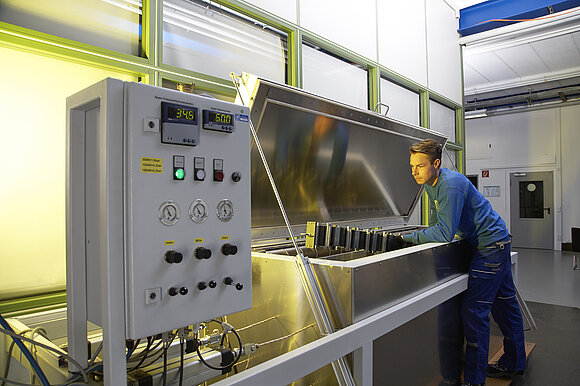
Background knowledge: Building Material Test and Building Materials Science
In general, building material test designates the quality control of building materials, raw and auxiliary materials and intermediate products, as well as the determination of the suitability of soils for use in building construction or civil engineering. The tests of building materials are carried out in the laboratory or alternatively on site. The analysis is carried out using statistical methods based on measurement data. Building materials science is concerned with the study of material properties. The main focus is on resistance, but deformability, fire behaviour, sound insulation and other properties are also illustrated as objects of research. A distinction is made between natural building materials such as wood and clay as well as artificial building materials such as structural steel, glass and plastics.
Laboratory for Material Testing
Theodor-Gietl-Str. 7-9
83026 Rosenheim
